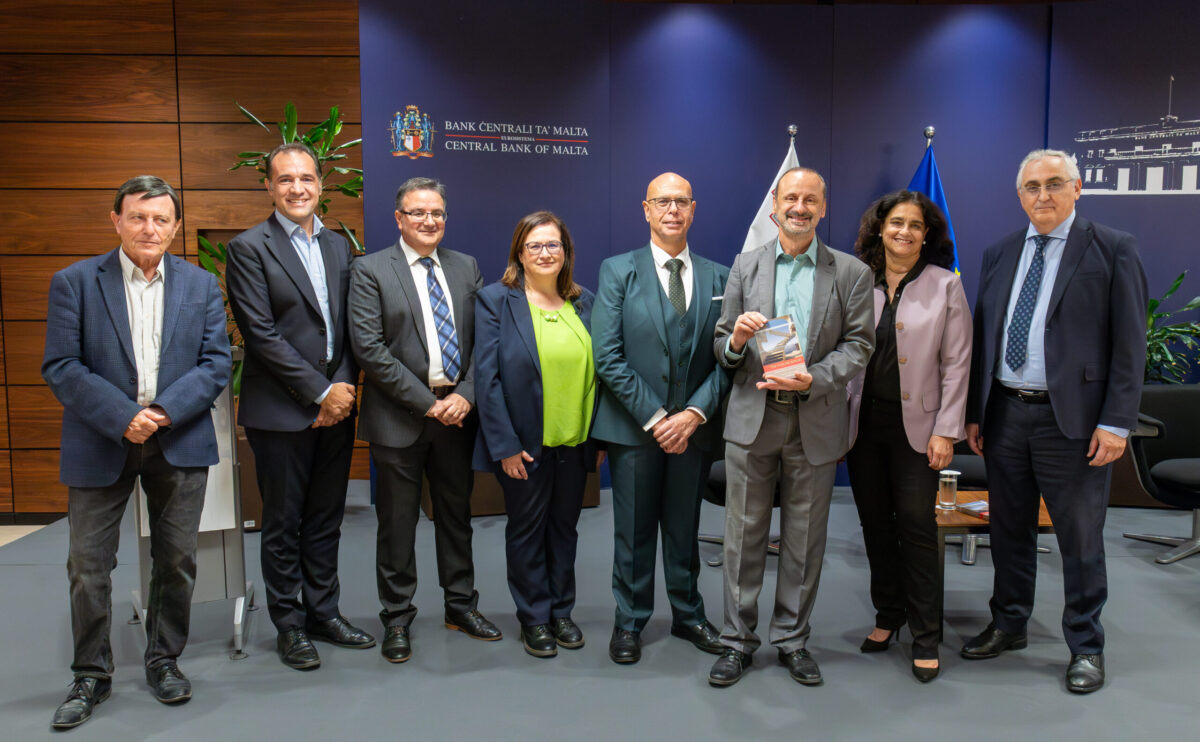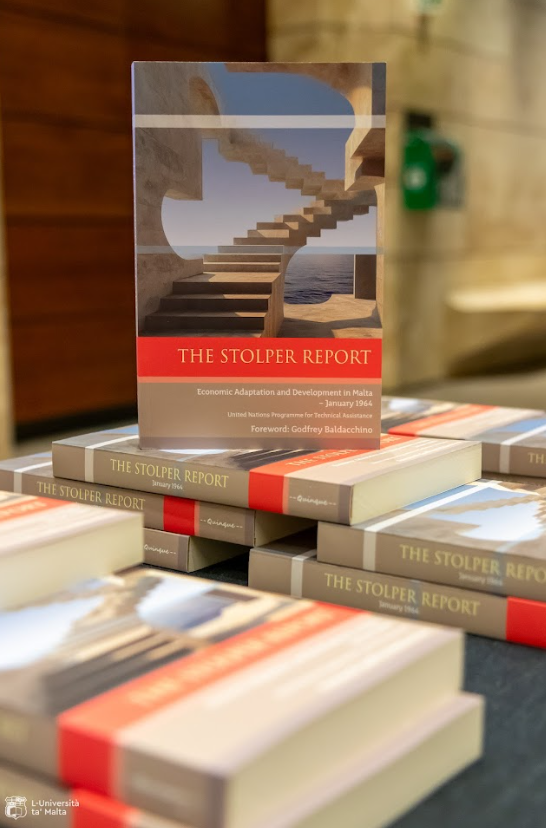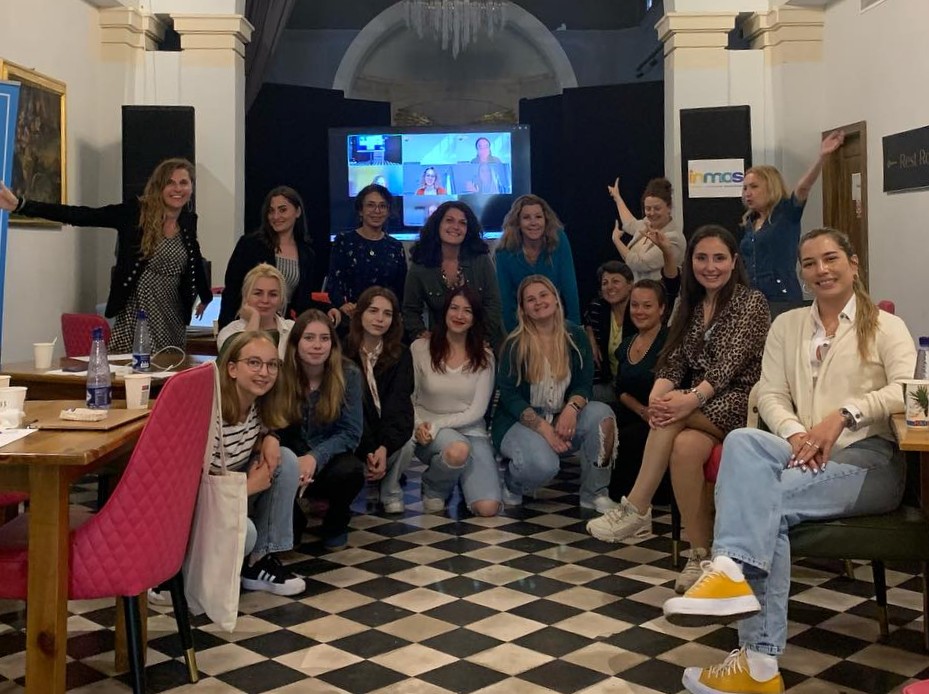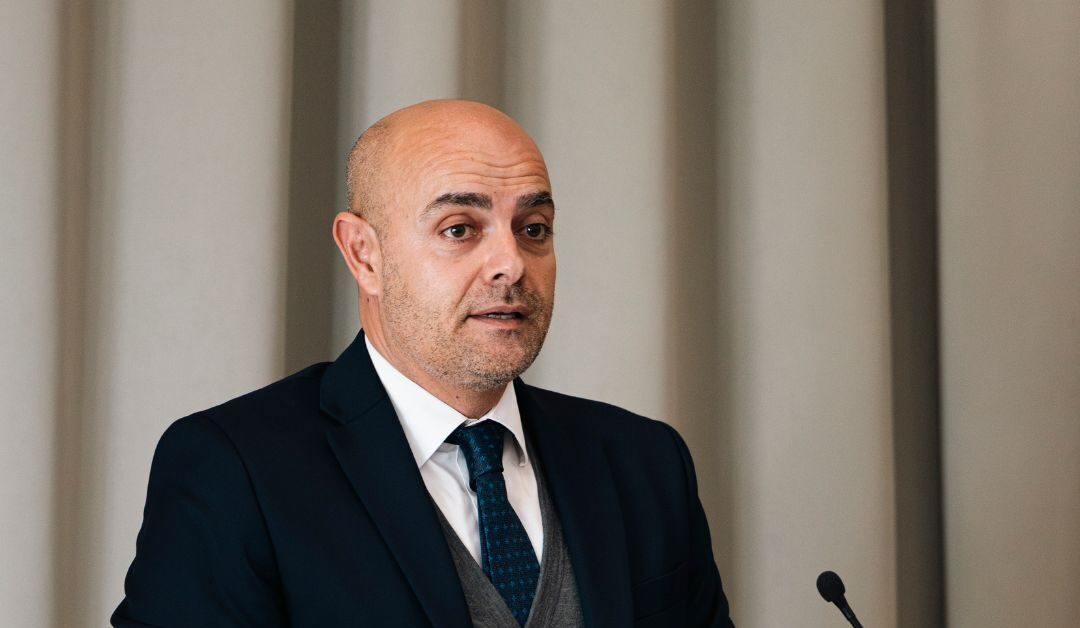Independence for Malta was a leap of faith. The country had to get it right, and the Second Development Plan of 1964-1969 was the vehicle for the job.
In 1963/4, an economic mission brokered by the United Nations, and headed by US economist Wolfgang Stolper, came to Malta to unpack the country’s economic predicament and what realistic development trajectories could be proposed. The prescribed medicine was bitter but necessary. A fledgling private sector had to be nurtured, suitable foreign investment had to be attracted, and widespread public sector employment had to be reined in.
Malta’s economic vision six decades ago has been published, in facsimile format, by Quinque Publishers. Titled ‘The Stolper Report: Economic Adaptation and Development in Malta’, the publication was launched on Wednesday 6th November 2024 at the Central Bank of Malta, in an event jointly organised with the Faculty of Economics, Management and Accountancy (FEMA) at the University of Malta.

Looking at the Stolper Report now allows readers to experience the historical context and appreciate the significant progress Malta has made since then, as well as the structural problems which linger. The report serves as both a time capsule and a testament to the transformative changes in Malta’s economy and society over the decades. It also exemplifies an integrated approach to economic planning that considers possible eventual outcomes and the impacts on future generations.
A cross-disciplinary panel discussed the Stolper Report and its insights on contemporary Malta. It consisted of Tonio Fenech, Former Minister of Finance, Rose Marie Azzopardi from the Department of Economics at FEMA, Alexander Demarco, Acting Governor at the Central Bank of Malta, and Marie Louise Mangion from the Department of Politics, Policy and Governance at FEMA. Godfrey Baldacchino moderated the discussion. Emanuel Said, FEMA Dean welcomed the guests; while Joe Schembri, from the Department of Marketing, FEMA, served as the eclectic rapporteur for the event.
The panellists and interventions from the floor expressed concern about Malta’s overheating economy, including the impact from the distortions induced by subsidies, as well as tax regimes that incentivise rentier income and the construction industry. It was noted that Malta’s infrastructure is finding itself increasingly under strain – from effective public transport to sewage treatment – leading to an erosion in the general quality of life that are not captured by metrics that emphasise consumption and economic growth.
The role of the University of Malta in supporting the development of talent and skill sets relevant to the local labour market, and beyond what Stolper criticised as producing just ‘lawyers and doctors’, was also discussed.
What do women entrepreneurs need to succeed?
Community support and technical competences can help aspiring entrepreneurs overcome structural challenges, says Viviana Premazzi.
What survives February matters more than what starts in January
How many goals or resolutions did you set in January?
‘A necessary growing pain’: MIA CEO Alan Borg on airport expansion
He said the investment is necessary if MIA is to remain among Europe’s leading airports
BNF appoints new Chief Financial Officer and Chief Banking Officer
Nadia Miceli promoted to Chief Financial Officer, while Stewart Carvil appointed Chief Banking Officer









